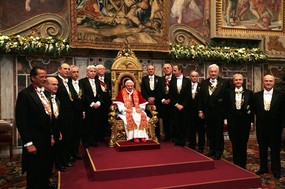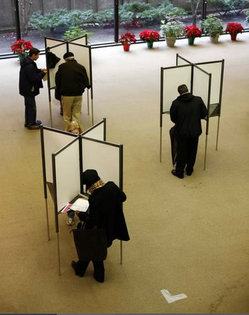We have the
state of the school address, the state of the state address, the state of the
nation address, and even have the state of the world. Today, Pope Benedict XVI
delivered his ‘state of the world’ speech to the diplomatic corps accredited to
the Holy See. Depending on how you count, there are between 178 to 181 diplomats
at the Holy See. Please note the Pontiff’s concentration on religious freedom; he is, head and shoulders above all world leaders, the voice for religious freedom as the path to true, lasting peace. The
Pope’s address, the original was delivered in French:
Your Excellencies, Ladies
and Gentlemen,
I am pleased to welcome you, the distinguished representatives
of so many countries, to this meeting which each year assembles you around the
Successor of Peter. It is a deeply significant meeting, since it is a sign and
illustration of the place of the Church and of the Holy See in the
international community. I offer my greetings and cordial good wishes to each
of you, and particularly to those who have come for the first time. I am
grateful to you for the commitment and interest with which, in the exercise of
your demanding responsibilities, you follow my activities, those of the Roman
Curia and thus, in some sense, the life of the Catholic Church throughout the
world. Your Dean, Ambassador Alejandro Valladares Lanza, has interpreted your
sentiments and I thank him for the good wishes which he has expressed to me in
the name of all. Knowing how close-knit your community is, I am certain that
today you are also thinking of the Ambassador of the Kingdom of the
Netherlands, Baroness van Lynden-Leijten, who several weeks ago returned to the
house of the Father. I prayerfully share your sentiments.




